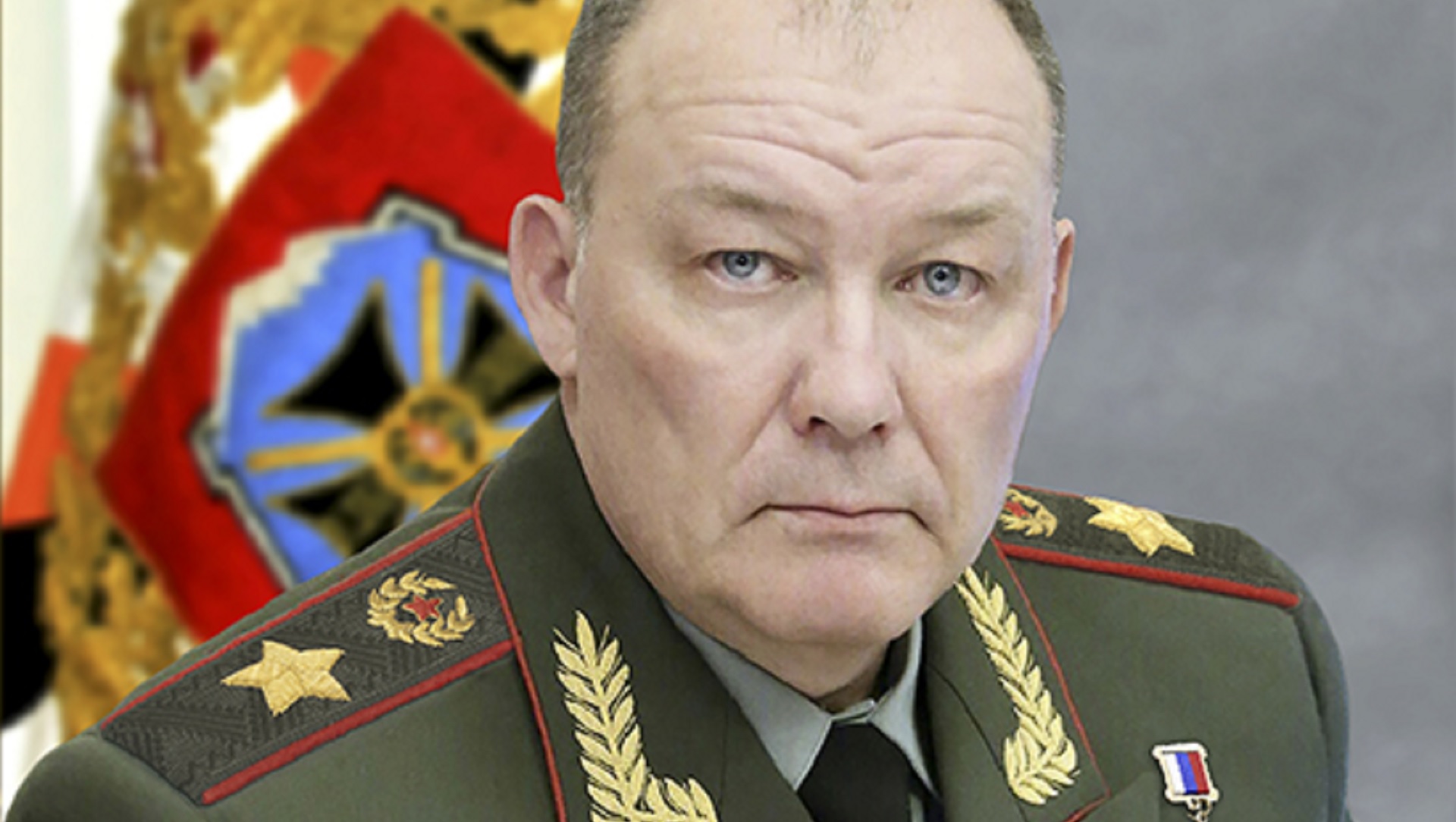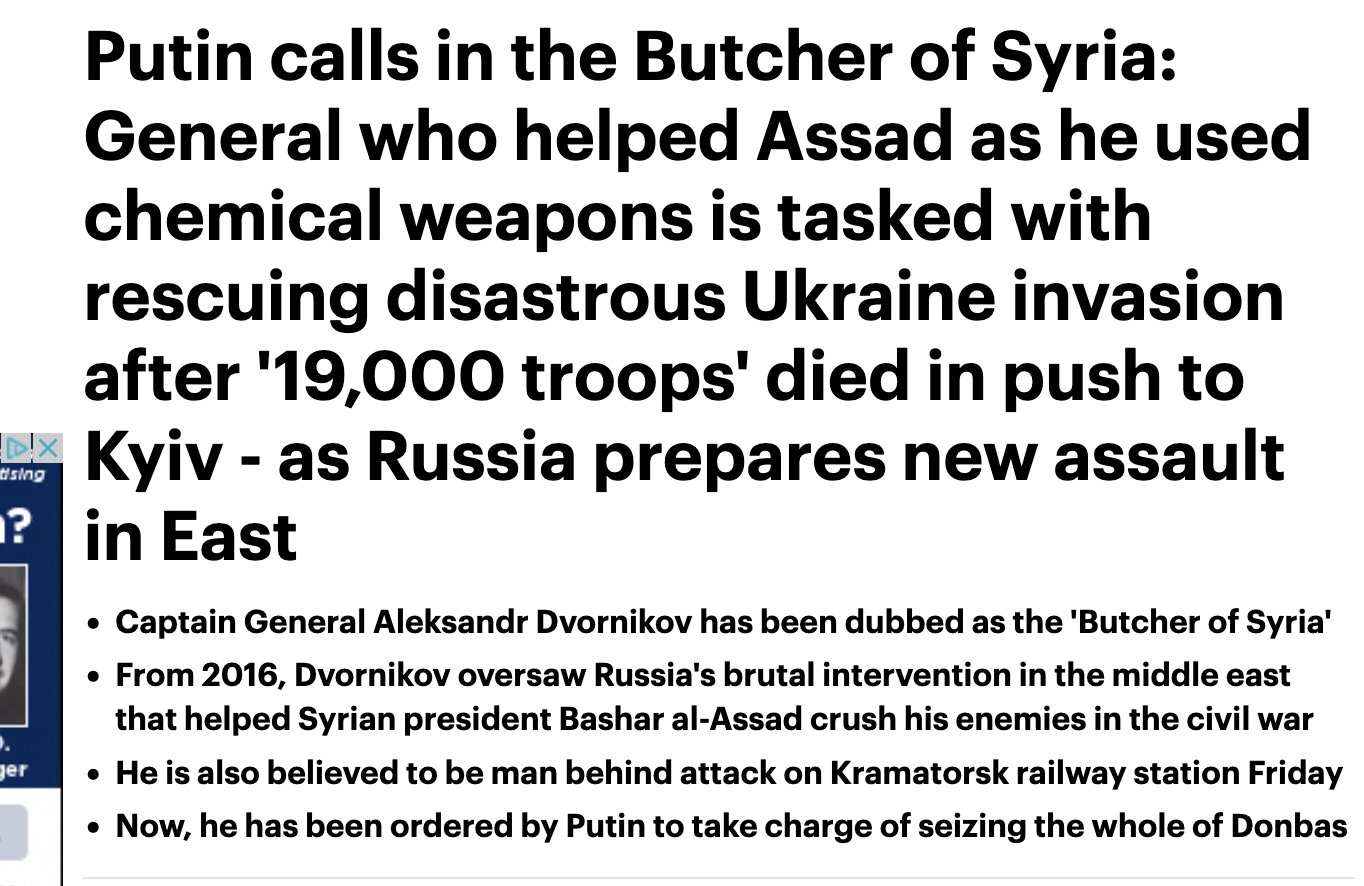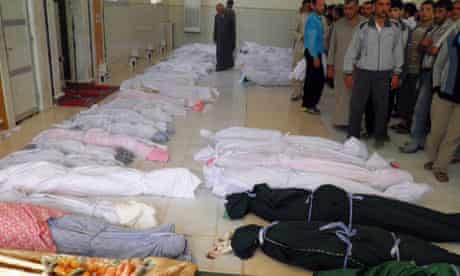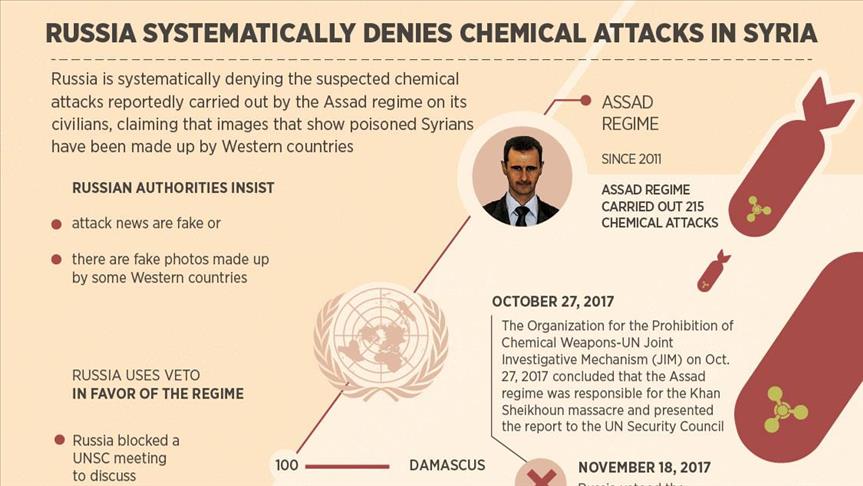
Time For Putin bring in Alexander Dvornikov for a massacre
Alexander Dvornikov isn’t exactly a household name, but it could be soon. He’s the Russian general President Vladimir Putin has put in charge of the war in Ukraine after what can generously be described as a disappointing start for Moscow. Dvornikov is credited with saving the Russian campaign in Syria, and the Kremlin hopes he can replicate his successes in Europe.

 Syria and Ukraine differ in one crucial way: Syrians had no external
support to speak of. The Ukrainians have NATO. So far, NATO has been
part of an economic war against Russia and a source of weapons for the
Ukrainians. It has not crossed the line to direct, overt intervention on
a major scale. Dvornikov could change that.
Syria and Ukraine differ in one crucial way: Syrians had no external
support to speak of. The Ukrainians have NATO. So far, NATO has been
part of an economic war against Russia and a source of weapons for the
Ukrainians. It has not crossed the line to direct, overt intervention on
a major scale. Dvornikov could change that.
NATO members have made clear they would not intervene directly, but as the atrocities mount, so would the pressure to act. The publics of most NATO countries oppose intervention, but it only takes a few Buchas to change their attitudes. And the U.S. itself is never far away.
 Appointing Dvornikov to save the day is a Hail Mary. But this misses
the point. Even if Dvornikov’s brutality can somehow pacify Ukraine, it
will convince the rest of the world to keep sanctions in place, thereby
institutionalizing their crippling economic effects. Economic warfare is
being waged by a massive global coalition. Russia was hardly
economically robust before the war, but there are some claims that
Russia’s gross domestic product is contracting by 50 percent. That may
be overstated, but there is no question that things are bad. For Russia
to “win” in Ukraine would not solve this problem. If anything, it could
compound it.
Appointing Dvornikov to save the day is a Hail Mary. But this misses
the point. Even if Dvornikov’s brutality can somehow pacify Ukraine, it
will convince the rest of the world to keep sanctions in place, thereby
institutionalizing their crippling economic effects. Economic warfare is
being waged by a massive global coalition. Russia was hardly
economically robust before the war, but there are some claims that
Russia’s gross domestic product is contracting by 50 percent. That may
be overstated, but there is no question that things are bad. For Russia
to “win” in Ukraine would not solve this problem. If anything, it could
compound it.
With Dvornikov managing Ukraine, Russia must go from a single Hail Mary to a second larger one. The only way to both win in Ukraine and get free from the sanctions is to create a basis for negotiations and mutual concessions. To do that, Russia must have some basis on which to get the West to abandon its sanctions regime – that is, by having something to trade. Russia cannot impose equivalent sanctions, nor can it gin up public sympathy for Russia. This leaves it only one option: to threaten Western economies by threatening the trading system.
This requires a military solution. Russia has over 20 Kilo-class submarines, diesel-powered subs that lack the range and endurance of nuclear-powered submarines but are nonetheless able to carry both torpedoes and cruise missiles, which means they launch from a distance. There is a range of chokepoints that are critical to the West – the Denmark Strait, the Strait of Gibraltar and the Gulf of Mexico are just a few. A demonstration shot would shut down trade and send insurance rates surging, while navies try to determine the extent of the deployment and target. The goal of the Russians would be to demonstrate presence, break contact and evade. The uncertainty would threaten trade.
Of course, this would be the ultimate Hail Mary, and one I am writing about because it is for me a leading concern from any hostile nation that wants to improve its negotiating position with the U.S. (or any trading nation). In most cases, this is a dubious strategy. It is dubious here as well. Russia’s goal may be to win in Ukraine, but that won’t solve its fundamental problem. It can only get economic negotiations with leverage, and at the moment, it has little economic leverage. Its only possible solution is to turn this into a military lever. Given the power of the U.S. and NATO navies, this is a forlorn hope, but so is appointing Dvornikov. The good choices are evaporating.
I believe that Putin is, in the end, fighting for his political life, and that makes him open to the Hail Marys of the game. Since he will not go quietly, this is a risky and extreme choice. But he seems to be favoring those at the moment – perhaps with good reason.




No comments:
Post a Comment
Note: Only a member of this blog may post a comment.